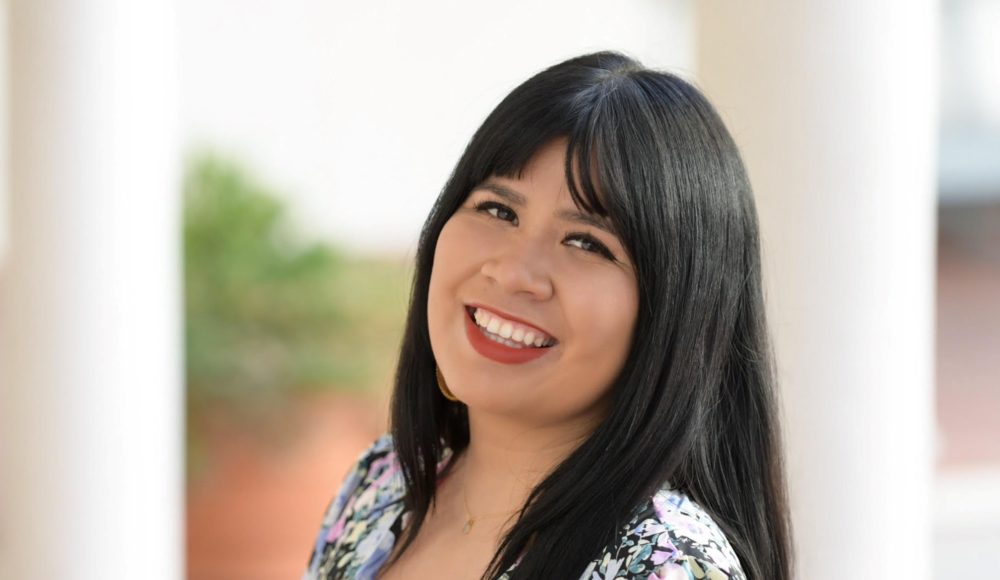By John Malkin
Ghosts of Adelanto & the Rise of Abolish ICE is a powerful new film on U.S. detention and deportation of migrant families and the young feminist and queer activists who are fighting to change that system. Cinthya Martinez is co-writer of Ghosts of Adelanto and her personal journey is one of those highlighted. Martinez earned a PhD at UC Riverside and will begin teaching in the UC Santa Cruz Latin American and Latino Studies Department.
Ghosts of Adelanto and the Rise of Abolish ICE will have a preview screening at the Del Mar Theater Feb. 20 at 7pm. Reservations are required at ias.ucsc.edu. The film was produced by Setsu Shigematsu and Mayon Denton as a sequel to Visions of Abolition (2011).
JM: Ghosts of Adelanto begins with a warning; “This film contains images and stories of state violence.” Tell me about your experiences that drew you into activism to abolish ICE.
Cinthya Martinez: I grew up as the only U.S. citizen in my family. When I was a little girl my mom would whisper, “We don’t have papers. We’re undocumented.” At the same time, she would reaffirm that I didn’t have to worry. It’s a hard way to grow up, knowing that your family – your whole world – could just crumble at any moment. This feeling always follows you that family separation could happen the next time you go to the front door, when you least expect it.
JM: The film focuses on Adelanto, the largest of five immigration prisons in California, and run privately for-profit by GEO. Would you describe this prison?
Cinthya Martinez: Adelanto is a town in the high desert two hours from Los Angeles. The Adelanto ICE Detention Center is surrounded by six other prisons. Adelanto has a bed capacity of almost 2000 and they added a new annex with 700 beds. Those two combined makes it the biggest migrant detention facility in the U.S. The United States incarcerates the most migrants worldwide.
When I started visiting detained people at Adelanto, I visited mostly women and queer people who had faced another layer of isolation because of their identities. They began talking about the recurring trauma they’ve faced. Not only as people who have crossed many borders, if we’re talking about Central Americans. But more profoundly, a haunting of not just whatever happened in their country of origin and during their migration route but, “This continuum of violence did not stop when we got to the U.S.”
JM: An attorney with Freedom for Immigrants, Leyla Razavi, poses this question, “Is it okay to put people in prison for crossing a border?” She answers, “No.”
Cinthya Martinez: There is the myth of “the melting pot” and “we accept everyone” and it’s the land of the free. But at the beginning of this nation, one of the founding core values was that citizenship was reserved only for white men. And immigration was reserved for European white people. This nation has a dark history of being exclusionary.
JM: Tell me about feminist abolition.
Cinthya Martinez: We were really intentional about making this film from a feminist abolition perspective. About 80% of women who are incarcerated are survivors of domestic violence. And a big number of them were defending themselves from abusers. There’s a myth that prisons make us safe. It’s been feminist organizers who say, “We care about the safety of survivors of violence. And policing and incarceration only serve to re-victimize survivors.”
We reject prison reform and say “community not cages.” One feminist, anti-carceral organization I work with is Survived and Punished. We see so many cases of ICE and prison guards abusing people to implement dominance. But these borders and prisons haven’t always been here. This is not the way humans have always related to each other. I really believe this won’t always be the way that we live.
Listen to this interview with Cinthya Martinez on Thursday at noon on Transformation Highway with John Malkin on KZSC 88.1 FM / kzsc.org














